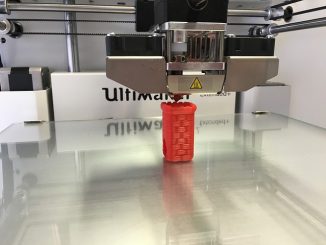
Researchers at the Case Western Reserve University School of Medicine have published a study in which they have identified a new molecular pathway that controls lifespan and healthspan in Caenorhabditis elegans, a type of nematode or roundworm. The study, published in the journal Nature Communications, reveals that C. elegans worms with high levels of proteins called Kruppel-like transcription factors (KLF) have longer and healthier lives.
“We find that by artificially increasing or decreasing the levels of a family of proteins called Kruppel-like transcription factors, we can actually get C. elegans to live for longer or shorter time periods,” said the study’s first author Nelson Hsieh to Sci News. “Since this same family of proteins also exists in mammals, what is really exciting is that our data suggest the KLFs also have similar effects on aging in mammals, too.”
When observed in mice, high levels of KLF led to a delay in blood vessel dysfunction that is linked to aging. The research provides an additional framework for understanding aging and age-associated conditions in humans.
“The observation that KLF levels decrease with age and that sustained levels of KLFs can prevent the age-associated loss of blood vessel function is intriguing given that vascular dysfunction contributes significantly to diverse age-associated conditions such as hypertension, heart disease, and dementia,” said senior author Mukesh K. Jain.
The C. elegans roundworm is a favorite subject for biological research as the 1 mm long nematode‘s cell types and cell lineage have already been identified by Sydney Brenner, the 2002 Nobel Prize laureate. In addition, the fact that this organism has a simple body structure, makes it easy to study. Mice too are another favorite model; 99% of a mouse’s DNA is similar to humans, and mice have short lifespans compared to other mammals.
The study shows that the function of KLF is to control a normal body process called Autophagy (in Greek, this literally means “self-devouring”). When autophagy occurs, the body performs a regulated clearing operation thru a self-digesting mechanism responsible for removal of long-lived or damaged proteins by causing subsequent loss of the affected cells.
Obviously, not just any cell undergoes destruction as a result of this self-degradative and recycling process. Only those cells with misfolded or aggregated proteins and other dysfunctional components are terminated. Autophagy also clears debris and other normal byproducts of metabolisms that tend to accumulate with age. If there is a decrease or eventual loss in this clearing activity, that’s the time the unwanted aging effects start to kick in. C. elegans worms without KLFs cannot maintain normal autophagy, and they die early.
Going forward, the researchers’ next step is to study some of autophagy’s regulating mechanisms, which are not fully understood yet, and how they can contribute to improved blood vessel function. The research will be focused on ways to design strategies that could control KLF levels in humans.
“As our population ages, we need to understand what happens to our heart and arteries, as we rely on them to function perfectly later and later on in our lives”, added Hsieh. “Our findings illuminate what can happen during aging, and provide a foundation to designing interventions which slow these processes.”
Reference: Nature Communications
Disclaimer: This page contains affiliate links. If you choose to make a purchase after clicking a link, we may receive a commission at no additional cost to you. Thank you for your support!




Leave a Reply